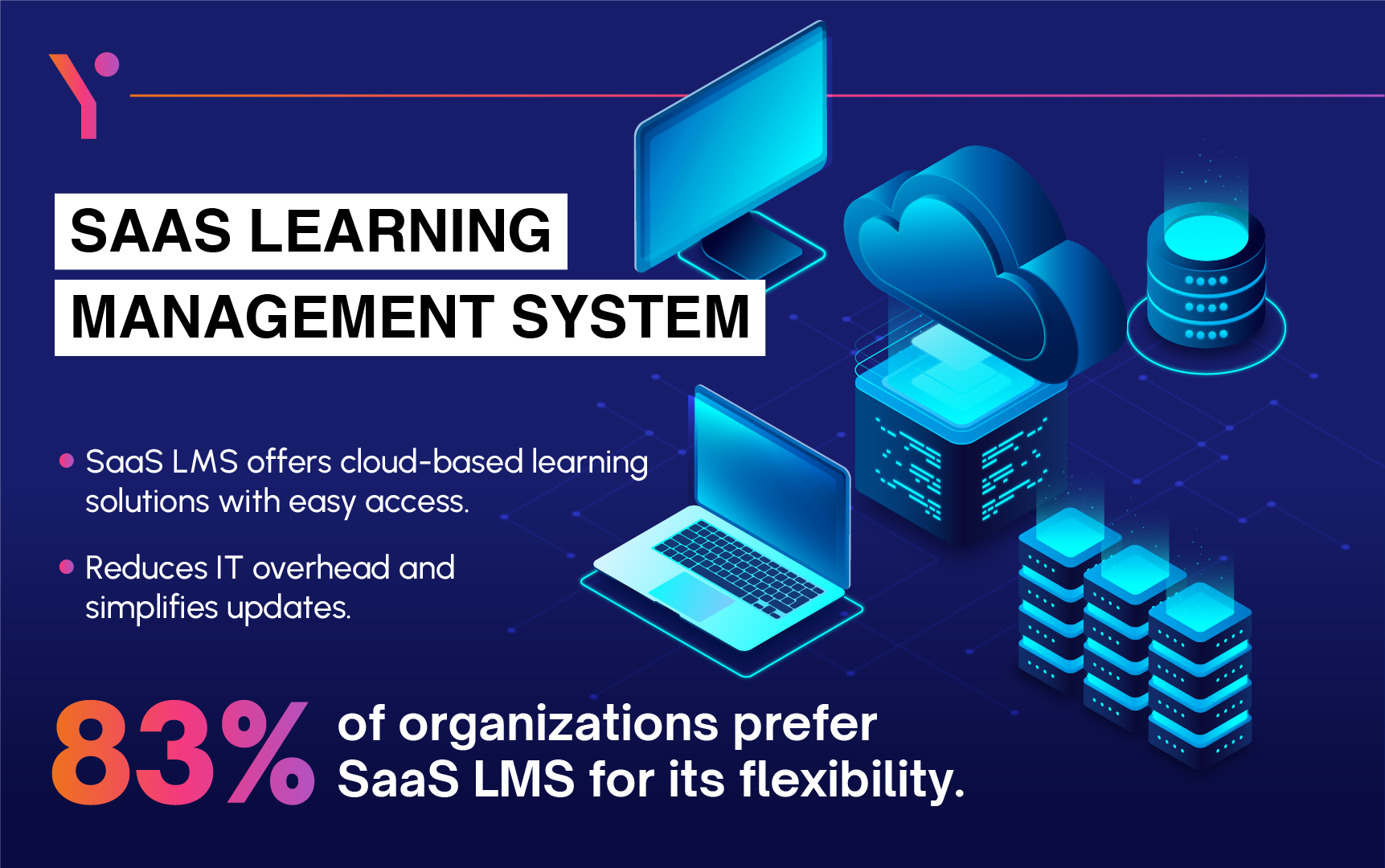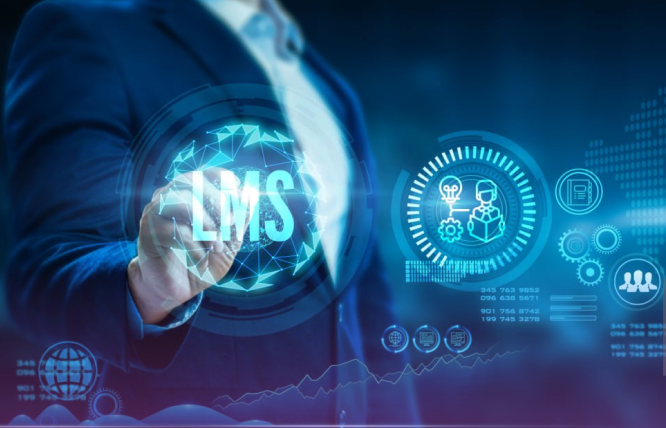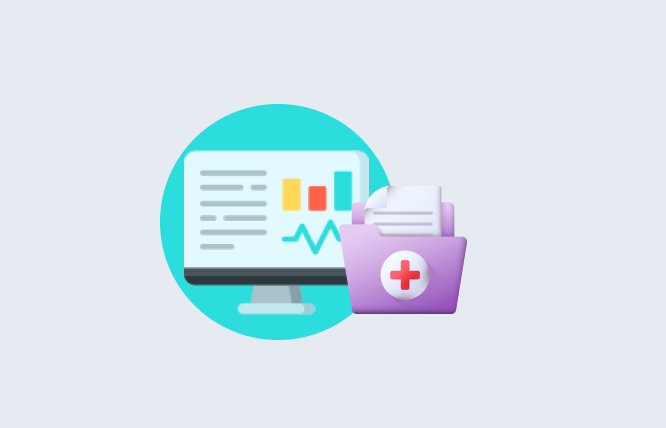Introduction
Learning management systems are considered one of the best tools when it comes to training and assisting new employees or existing employees prepare for their job and evaluate their performance. These systems can also be used by educational institutes and even non-profit organisations.
In this article, we will be discussing the impact of learning management systems and the benefits different organisations can enjoy. Keep reading to learn more.

Learning Management System Trends in The Current Market
The learning management system market is growing exponentially over the years with the number of LMS users being estimated at 73.8 million. 87% of these users are using cloud-based LMS and post-pandemic 90% of students also prefer online LMS to learn as opposed to traditional learning methods.
This all goes to show that the LMS market is not only here to stay but also grow. Latest market research (Global Opportunity Analysis, n.d.) reveals that the LMS market will reach a value of $28.1 billion by the end of 2025. Let’s learn about all the key features of SaaS learning mangement systems and how they can beenfit businesses.
Key Features that Differentiate SaaS LMS from Traditional LMS
SaaS Learning Management Systems (LMS) offer several advantages over traditional LMS platforms, driven by their cloud-based nature and modern design principles. Here are the key features that set SaaS LMS apart from traditional LMS:
| Feature | SaaS LMS | Traditional LMS |
| Cloud-Based Accessibility | Hosted in the cloud; accessible anytime, anywhere. | Requires on-premises installation; limited access. |
| Cost-Effectiveness | Subscription model; lower upfront costs; includes updates and support. | High initial investment in hardware and licenses; ongoing maintenance costs. |
| Scalability | Easily scalable; add/remove users without issues. | Limited scalability; requires hardware/software upgrades. |
| Automatic Updates | Continuous updates and enhancements. | Manual updates; can cause downtime and disruptions. |
| Integration Capabilities | Seamlessly integrates with other cloud-based tools. | Complex integration; may require custom development. |
| Maintenance and Support | Managed by provider; reduces administrative burden. | Managed by the organisation; requires IT resources. |
| Mobile Compatibility | Designed for mobile use; accessible on smartphones and tablets. | Not optimised for mobile; limited accessibility. |
| Customisation and Personalisation | Customisable learning paths; tailored experiences. | Limited customisation; requires significant effort. |
| User-Friendly Interface | Intuitive and easy to navigate. | Often outdated and less intuitive. |
| Advanced Analytics and Reporting | Robust tools for detailed insights. | Basic reporting; may require additional tools. |
| Security and Compliance | High security with regular updates; compliant with industry standards. | Managed in-house; resource-intensive; may not keep pace with threats. |
| Gamification and Engagement Tools | Includes gamification features for engagement. | Less common; may require additional customisation. |
Benefits of SaaS Learning Management Systems
SaaS learning management systems can make a massive difference for educational institutes and businesses alike when it comes to training content and online classes. Integrating a SaaS learning management system will offer the following benefits.
Cloud-Based Accessibility
One of the most significant benefits of SaaS Learning Management Systems (LMS) is their cloud-based accessibility. With a SaaS LMS, learners and administrators can access the platform from anywhere with an internet connection. This flexibility is crucial in today’s globalised and remote-working environments, allowing for seamless learning experiences without geographical constraints.
Cost-Effectiveness
SaaS LMS platforms operate on a subscription model, which significantly reduces the initial investment compared to traditional LMS. This model includes regular updates, maintenance, and support within the subscription cost, eliminating the need for substantial capital expenditure on hardware and software. Organisations can allocate their budget more efficiently, paying only for the features and capacity they need.
Scalability
Scalability is another key advantage of SaaS LMS. As the organisation grows, the SaaS LMS can easily scale to accommodate more users without requiring significant changes to the infrastructure. This elasticity allows businesses to expand their learning programs quickly and efficiently, supporting an increasing number of learners and courses without disruptions.
Automatic Updates
With SaaS LMS, updates and enhancements are automatically applied by the provider, ensuring that the system is always up-to-date with the latest features and security measures. This automatic update process reduces downtime and the administrative burden on IT departments, allowing organisations to focus on their core activities rather than system maintenance.
Seamless Integration
SaaS LMS platforms are designed to integrate smoothly with other cloud-based tools and enterprise systems. This capability allows organisations to create a cohesive learning ecosystem, connecting the LMS with HR systems, content management systems, and communication tools, enhancing the overall efficiency and effectiveness of learning and development programs.
User-Friendly Interface
A SaaS LMS typically offers a modern, intuitive, and user-friendly interface, making it easy for both learners and administrators to navigate and use the system. This ease of use enhances the learning experience, increasing engagement and adoption rates among users.
Advanced Analytics and Reporting
SaaS LMS platforms come equipped with robust analytics and reporting tools. These tools provide detailed insights into learner progress, course effectiveness, and overall training impact. With these analytics, organisations can make data-driven decisions to improve their training programs and achieve better outcomes.
Security and Compliance
SaaS LMS providers prioritise security and compliance, offering high levels of data protection and adherence to industry standards. Regular security updates and compliance checks ensure that the platform remains secure, reducing the risk of data breaches and ensuring that organisations meet regulatory requirements.
Mobile Compatibility
SaaS LMS platforms are designed with mobile compatibility in mind, allowing learners to access courses on their smartphones and tablets. This mobile-friendly approach supports modern learning habits, enabling users to learn on the go and at their own pace.
Gamification and Engagement Tools
Many SaaS LMS platforms include gamification features and engagement tools that enhance the learning experience. Features such as leaderboards, badges, and interactive content motivate learners, making the learning process more enjoyable and effective.
Industries That Use SaaS Learning Management Systems
Industries all over the world are leveraging SaaS learning management systems to help them streamline their processes. Following are some of the reasons why SaaS learning management systems are used in different industries.
Corporate Training
In the corporate sector, SaaS Learning Management Systems (LMS) are widely used for employee training and development. Businesses leverage these systems to onboard new hires, provide ongoing professional development, and ensure compliance with industry regulations. The flexibility and scalability of SaaS LMS platforms make them ideal for organisations of all sizes, enabling them to deliver consistent training experiences across multiple locations and departments.
Education
Educational institutions, including K-12 schools, colleges, and universities, utilise SaaS LMS to enhance their teaching and learning processes. These platforms support a variety of educational models, from traditional classroom settings to fully online courses. Educators can create and manage course content, track student progress, and facilitate communication and collaboration among students and teachers, all within a user-friendly online environment.
Healthcare
The healthcare industry relies on SaaS LMS for training healthcare professionals, ensuring they are up-to-date with the latest medical practices, technologies, and regulatory requirements. These systems are particularly valuable for continuing medical education (CME), mandatory compliance training, and onboarding of new staff. The ability to access training materials anytime, anywhere is crucial in a field where professionals often work irregular hours.
Manufacturing
Manufacturing companies use SaaS LMS to train their workforce on production processes, safety protocols, and compliance standards. These platforms help ensure that employees have the necessary skills and knowledge to operate machinery safely and efficiently. Additionally, they provide a centralised location for all training materials, making it easier to manage and update content as industry standards evolve.
Retail
The retail industry benefits from SaaS LMS by training employees on customer service, sales techniques, and product knowledge. These systems enable retail chains to provide uniform training across all their stores, ensuring a consistent customer experience. They also support the rapid onboarding of seasonal staff, helping retailers manage workforce fluctuations during peak shopping periods.
Non-Profit Organisations
Non-profit organisations utilise SaaS LMS to train volunteers, staff, and partners on their missions, policies, and procedures. These platforms help non-profits deliver impactful training programs cost-effectively, supporting their efforts to build knowledgeable and skilled teams that can drive their missions forward.
Technology
Tech companies often use SaaS LMS to keep their employees up-to-date with the latest industry trends, software development methodologies, and technical skills. These platforms support continuous learning and professional development, helping tech firms maintain a competitive edge in a rapidly evolving industry.
Financial Service
The financial sector employs SaaS LMS to train employees on compliance, risk management, and new financial products and services. These systems ensure that staff are knowledgeable about regulatory changes and industry best practices, helping financial institutions operate more efficiently and securely.
Hospitality
Hospitality businesses, including hotels and restaurants, use SaaS LMS to train staff on customer service, operational procedures, and health and safety standards. These platforms help ensure that employees provide high-quality service, contributing to positive guest experiences and brand loyalty.
Conclusion
SaaS learning management systems are changing the way how the world learns. While the pandemic gave these systems a substantial boost, as more people used this, they understood its importance. Even now, after it has been years since the pandemic, people are still leaning more towards SaaS leaning management systems.
If you are looking for a SaaS learning management system specifically designed for your organisation FuturByte has got you covered. Contact us today for a free consultation.
Frequently Asked Questions
Benefits of using a SaaS LMS include cost savings, scalability, ease of use, regular updates, and accessibility from any location with an internet connection. SaaS LMS also offers integration capabilities with other systems, robust data security, and user-friendly interfaces that enhance the learning experience.
Yes, many SaaS LMS platforms offer customisation options to tailor the system to meet specific organisational needs. This can include branding, custom workflows, integration with other tools, and the creation of unique content and learning paths.
SaaS LMS providers prioritise data security and often implement advanced security measures such as encryption, regular security audits, and compliance with industry standards and regulations (e.g., GDPR, FERPA). It is essential to choose a reputable provider with a strong security track record.
With a SaaS LMS, updates and maintenance are handled by the service provider. This means users automatically receive the latest features, performance improvements, and security patches without needing to manually update the system or manage downtime.
The cost of a SaaS LMS varies depending on the provider, features, and number of users. Most SaaS LMS operate on a subscription-based pricing model, which can be more cost-effective than traditional LMS due to lower upfront costs and the elimination of expenses related to IT infrastructure and maintenance.
Yes, SaaS LMS platforms typically offer integration capabilities with other systems such as HR software, CRM, eCommerce platforms, and content creation tools. This allows for a seamless flow of data and enhanced functionality across different business processes.
While SaaS LMS is primarily accessed online, some platforms offer offline access to course materials through mobile apps or downloadable content. This ensures learners can continue their training even without an internet connection.
Have questions or feedback?
Get in touch with us and we‘l get back to you and help as soon as we can!




